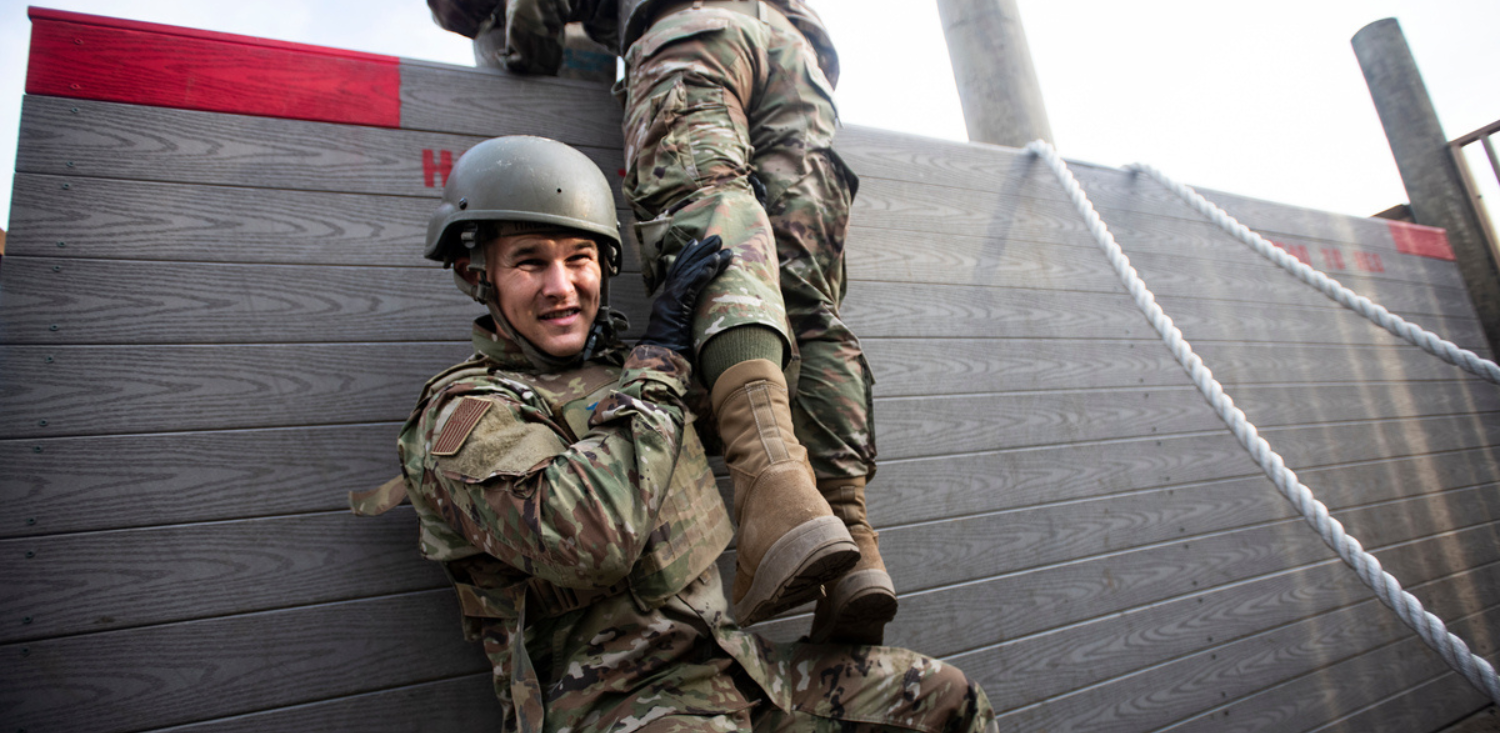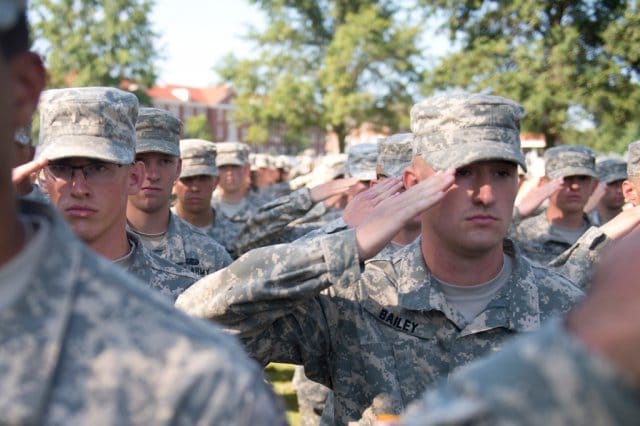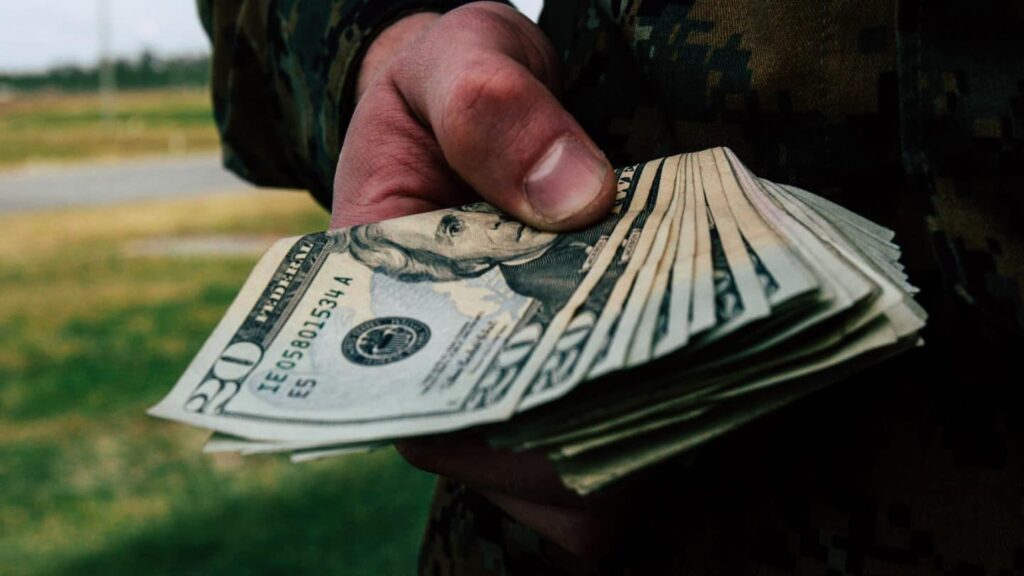When you’re in the military, it’s easy to feel like there are more important things to worry about than your credit score. That’s especially true if you’ve never had a credit card or if you’re trying to build up your credit from scratch.
However, in order to qualify for certain loans and other financial products later on in life (like buying a house or car), having good credit is crucial. Here’s how service members can build credit in the military, while they’re still early in their career.
Getting your first credit card as a service member is a good way to build your credit in the military
As a military service member, you know when you’re getting paid, but when it comes to building your credit score and establishing your financial identity your situation is similar to that of many other people who are just starting out in life. You’re trying to get your first credit card and establish credit history.
Credit cards can be an excellent way to build your credit score—as long as you manage them responsibly. Most major card issuers will give you a credit limit based on the amount of money they see coming in each month and the length of time they’ve been doing business with you. If you start small (with a $500 or $1,000 limit) and make payments on time so that the issuer knows they can trust you over time, you can eventually apply for higher limits as needed for larger purchases.
Establish credit history
In order to get loans, or an apartment, you will need a good credit score, and the best way to do that is to have a history of paying bills on time.
Opening a credit card can help you build this history, as long as you use it wisely and pay off your bill each month—and ideally the full balance, not just the minimum payment. For most people, this will be a student or store-branded card, since those are easier to qualify for and don’t come with an annual fee.
If you’re in the military, though, you may not be able to get one of these cards without proof of income—and if you’re just starting out in the military, that can be tricky.
If this is the case for you, and you want to build your credit score before leaving for basic training, consider applying for a secured card instead. Secured cards require a deposit: typically $250-500 but sometimes as low as $200, which means that they’ll report positive payment history even if there’s no actual outstanding balance on the account. You can then use it responsibly until it maxes out at whatever amount was put down initially.
Monitor your credit score regularly
Credit bureaus, such as Experian and Equifax, keep track of your credit history. They include information like how much you owe, whether or not you pay on time and any bankruptcies or court judgments against you.
A credit score is a three-digit number that represents the likelihood that an individual will repay their debts. Most lenders use these scores from the bureaus to decide whether or not to offer loans and at what rate of interest.
The range for most borrowers’ scores is about 300 to 850, and higher scores are better as they represent fewer financial concerns and therefore make it easier for lenders to trust them with loans.
Credit reports are another important consideration when checking your credit score: They provide detailed information about all three major bureaus’ records on an individual’s finances over time. These reports show things like previous addresses and employers; payment history with banks; utility providers; collection accounts; public records associated with civil lawsuits filed against the borrower (such as divorce filings); inquiries made by potential creditors attempting to access personal data through a third party company known as “information resellers.”
Avoid opening too many accounts at once
One mistake that many people make is to open too many credit accounts at once. This can be a problem for military members because they often relocate frequently, which means having several credit cards and loans could hurt their credit score.
It’s best to avoid opening too many accounts at once and instead focus on building one or two relationships with each creditor, the same way you’d build trust with your friends.
Pay down your car loans and other loans quickly
While you may be generating income from your military paychecks, it is unlikely that you’ll be able to live debt-free. Borrowing money for a car or other major purchases can help establish yourself as an independent member of society. These loans are good for learning how to manage your money, however it’s important not to get caught in the trap of putting all your financial eggs into one basket.
If at all possible, try to limit how much you’re paying on these debts so that there’s more money left over than necessary after paying them off each month. The faster you pay off these loans, the better off financially and emotionally you will be. Not only will it feel good knowing that they’re gone forever, but then those funds will be available for discretionary spending such as entertainment or savings.
It’s possible to build credit in the military while still early in your career. Start by opening your first credit card and establishing a credit history. Monitor your scores regularly so you know when it’s time to make a strategic change in order to build up more favorable scores. Pay off your debt quickly and avoid opening too many accounts at once. Remember, it takes years of good behavior before lenders will reward you with better interest rates!
Read More from Sandboxx
- New DoD military spouse career accelerator opens for applications
- 7 reasons to join the military beyond patriotic service (and pay)
- Navy special warfare warriors offered up to $100K in retention bonuses
- How to support a loved one heading to basic training
This blog does not provide legal, financial, accounting or tax advice. The content on this blog is “as is” and carries no warranties. Sandboxx does not warrant or guarantee the accuracy, reliability and completeness of the content on this blog.
Army & Air Force Exchange Services Photo by Julie Mitchell





